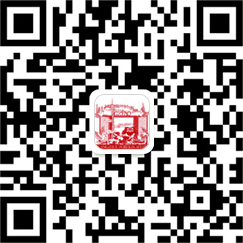Don't know the difference between home quarantine and home-health monitoring? Guangzhou CDC has the answer
On the afternoon of Dec 17, Zhang Zhoubin, deputy director and spokesperson of the Guangzhou Center for Disease Control and Prevention, clarified the differences between the three home health management methods to control COVID-19 at a press conference held by the municipal government.
According to Zhang, since the beginning of the pandemic, strict, centralized quarantine has been implemented for individuals deemed high-risk due to close contact with confirmed cases. For those who are considered as lower risk, home health management policy will be carried out after assessment. This lower-risk group includes: second-tier contacts who meet the standards for home quarantine, individuals entering China who have completed the 14-day centralized quarantine, front-line workers, and individuals considered necessary according to contact tracing result.
The home health management policy is comprised of three methods: home isolation and medical observation, home health monitoring, and self-health management.
Home quarantine and medical observation mainly requires that the person isolated should have access to a private room, or a room with good ventilation, a separate bathroom, and is relatively independent; or the person and the people living with him or her should be isolated together if aforementioned conditions are not met. Other requirements for home quarantine, if any, will be determined by the policy-implementing staff. Those do not qualify for home quarantine should be subject to centralized quarantine. "In short, home-isolated individuals should be isolated in a private room with a private toilet."
Home health monitoring requires individuals to take their temperature every day, take a PCR test as required, and wear a mask when going out. Items to be avoided include gatherings and events, visiting crowded places, taking public transportation, and visiting indoor, enclosed/semi-enclosed locations such as internet cafes, movie theaters, gyms, mahjong halls, chess and card rooms, bathing centers, and KTVs. Meanwhile, if experiencing symptoms such as fever, dry cough, fatigue, sore throat, loss of smell and taste and diarrhea, individuals should immediately report to the community and visit the designated medical institutions for a checkup. "In short, avoid going out unless necessary, and be a 'lone wolf' when you are out."
Self-health management requires individuals to only travel between home and work/school, and avoid gatherings such as dinners and parties; to wear a mask when taking public transportation, elevators and when in crowded places; and to avoid close, face-to-face conversations with other people.
Zhang also called for people to stay alert as the pandemic continues. Attention must be paid to not only oneself but to family members, friends, and colleagues as well. Remind them to follow government recommendations if they have recently visited another city, especially ones that have reported confirmed cases, or qualify for home health management.
Copyright © Foreign Affairs Office of Guangzhou Municipal Government,
Hong Kong and Macao Affairs Office of Guangzhou Municipal Government All rights reserved.
Presented by China Daily.
京ICP备13028878号-28



